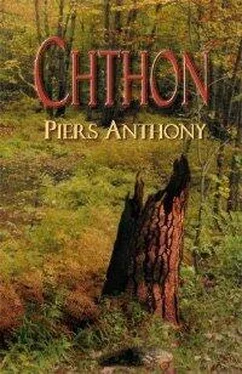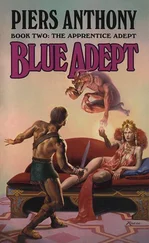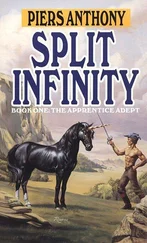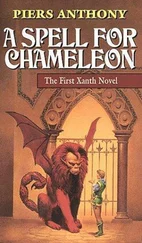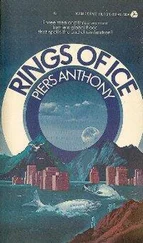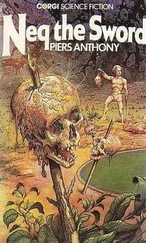Piers Anthony - Chthon
Здесь есть возможность читать онлайн «Piers Anthony - Chthon» весь текст электронной книги совершенно бесплатно (целиком полную версию без сокращений). В некоторых случаях можно слушать аудио, скачать через торрент в формате fb2 и присутствует краткое содержание. Город: 1967, Издательство: Ballantine, Жанр: Фантастика и фэнтези, на английском языке. Описание произведения, (предисловие) а так же отзывы посетителей доступны на портале библиотеки ЛибКат.
- Название:Chthon
- Автор:
- Издательство:Ballantine
- Жанр:
- Год:неизвестен
- Город:1967
- ISBN:нет данных
- Рейтинг книги:5 / 5. Голосов: 1
-
Избранное:Добавить в избранное
- Отзывы:
-
Ваша оценка:
- 100
- 1
- 2
- 3
- 4
- 5
Chthon: краткое содержание, описание и аннотация
Предлагаем к чтению аннотацию, описание, краткое содержание или предисловие (зависит от того, что написал сам автор книги «Chthon»). Если вы не нашли необходимую информацию о книге — напишите в комментариях, мы постараемся отыскать её.
Nominated for the Hugo Award for Best Novel in 1968.
Chthon — читать онлайн бесплатно полную книгу (весь текст) целиком
Ниже представлен текст книги, разбитый по страницам. Система сохранения места последней прочитанной страницы, позволяет с удобством читать онлайн бесплатно книгу «Chthon», без необходимости каждый раз заново искать на чём Вы остановились. Поставьте закладку, и сможете в любой момент перейти на страницу, на которой закончили чтение.
Интервал:
Закладка:
“A month later over half of the colony’s 2,000 person complement was dead, and more were dying. The planet was quarantined. Earth shipped supply capsules, charging their cost against the colony’s Earthside performance bond, but refused to accept any person or anything from the settlement itself. Thirty-six days after the onset—officially fixed at the moment of the first victim’s initial shakes—ten additional men and women suffered the warning siege and set their affairs in order, each in the manner befitting himself and his religion. On the following day no new cases were reported; nor were any on the days thereafter. The ten recovered, and the epidemic (for so it was then regarded) was over, as mysteriously as it had commenced. The colony was held in quarantine for five years, during which time it accumulated a debt it would take a century to exonerate, but there was no recurrence, either there or anywhere else.
“Fifteen years later the chill broke out again, however, at a colony twenty-five light-years distant from the first. The pattern was identical, with the exception that the authorities alertly slapped on the quarantine within hours of the first death. Half the pioneers had been fatally infected within thirty-six days; the rest lived. Humanity breathed a collective sigh of relief when no contagion was detected.
“Now the debate of the first century § raged hotly over the chill. What was it? How did it spread? For the first question there was no satisfactory answer. For the second there were several. One vociferous group held that the chill propagated by etheric waves traveling at the speed of light, a kind of death ray engulfing entire planets and moving on after a suitable interval to others. This was quickly labeled the Wave theory. Another leading group claimed that the contamination spread by personal contact, transmitted by some short-lived virus that rapidly mutated into impotence: specifically in thirty-six days. This was known as the Particle theory.
“The Wavists were challenged to demonstrate just how a wave traveling at lightspeed could traverse twenty-five lightyears in just twenty years. But they rationalized that the inclining beam emanated from some third point, twenty years closer to the first afflicted colony than to the second. They waited eagerly for a third colony to be struck, so that triangulation could locate the origin. And in turn they challenged the Particlists to explain why no member of the moon-based quarantine party had contracted the illness, since many had been exposed before the full danger was understood. And why the chill showed no abatement whatever prior to its fixed termination, if it were really mutating its steady way into oblivion. The reply was that the quarantine experts had been exceedingly careful at all times, as proven by their ability to avoid contagion by the chill; and that the chill itself abated even though the symptoms displayed by man did not. When the causative virus weakened so that it dropped below the threshold of effectiveness, the body’s natural defenses were able to repel it.
“Five years later both theories had their trials. A third colony was struck—but because its medic had been too busy publishing the learned tracts required for tenure and promotion to keep up with the medical literature, he failed to recognize the chill until several deaths had occurred. Infected colonists by this time had visited five other planets, including Earth itself. Moon station had been bypassed. Yet not a single case appeared outside the stricken colony, though the sick travelers cooled and died in public hospitals. The Particlists strained to explain the paradoxes, and could not. One of the victims had happened to be a popular call girl who continued her practice until her clientele complained of her literal frigidity. She died; the clients lived. The particle theory had been exploded.
“The Wavists pounced on the third coordinate with enthusiasm and triangulated for the fabled source. The third point was seventy-three light-years from the first; location was elementary. A ship of experts was dispatched. It found only empty space. If there had been a source, it had departed long since. And the disgruntled Particlists were quick to point out that a number of unaffected colonies lay between that so-called source point and the affected planets. How had those other colonies been missed? Was the wave discriminating? But in any event, the particular beam to strike the third colony could now be extrapolated. Volunteers planted themselves squarely in it—and were not affected. There was no beam, and the Wavists had been swamped.
“Time passed and the mystery deepened. Additional colonies were devastated, yet any victim removed within a day of the first symptom recovered promptly. If the chill were a contagious disease, why did time and location set such capricious limits? If it were a wave, why did so many escape?
“Gradually the unwilling answers appeared. Compromise gained the day. The chill did travel in lightspeed wave formation—but that wave was neither singular nor local. There were many waves, approximately a light-month in depth and ninety-eight light-years apart. The intersection of any wave with any colony meant pandemic until it passed. But within that wave there seemed to be random particles of infection that struck solely by the law of averages. Presumably there was a nutrient ether that guaranteed the progress of the illness unless the victim was promptly removed from its field. As with the ether of yore, none of this was detectable by instrument of man. He understood its presence by dying.
“The source was simply the center of the galaxy. There were other intelligent forms of life between man and that center, forms that also suffered variants of the illness, and it was rapidly understood that investigation was useless. The larger band of the chill impulse was twenty thousand light-years deep, and the source had been demolished long ago by a species now defunct. Yes, the chill was of artificial origin; no more was known.
“Meanwhile the waves were locally charted and schedules set up. The rich saved themselves by vacationing elsewhere during the critical month, while the majority simply waited and ferried the stricken out of range, if they found them in time. Great numbers were discovered too late.
“And Earth,” Hastings finished, “populous Earth, with far too many billions to transport, could do nothing but wait for the first of the waves to strike. This is the time: the year §400. I’m glad I’m not there.”
The crowd drifted off. Hastings had made light of the threat, but the chill was frightening, deep inside, to all of them. For no prisoner knew where Chthon was located.
The chill could strike tomorrow.
8
“Hey Fiver, pal—know what Garnet just done to me?” Framy was bursting with news.
“I can guess.” Aton halted his chipping and sat down.
Framy rushed right on. “She gimme a whole chow for free. I held out my garnet and she never took it. Just handed over my meal and went away, sort of dreamy. She ain’t never been so careless before.”
Aton reclined against the wall, rubbing grit off his forearms as Framy ate. “It wasn’t carelessness.”
Framy spoke around a mouthful. “But she never took the—you mean she done it on purpose?”
Aton nodded.
“She’d be crazy to do a thing Eke that. She hates me ’most as much as she hates you.”
“Does she?” said Aton. Hate is such an interesting thing. I hate the minionette…
Garnet appeared, interrupting their discussion. “Got your stone?” she gruffly asked Aton. Wordlessly he held it out. She took it and dropped the package on the floor.
Framy stared after her until she was gone. “God of the Pit! I never seen it before. She soft on you, Five.”
Читать дальшеИнтервал:
Закладка:
Похожие книги на «Chthon»
Представляем Вашему вниманию похожие книги на «Chthon» списком для выбора. Мы отобрали схожую по названию и смыслу литературу в надежде предоставить читателям больше вариантов отыскать новые, интересные, ещё непрочитанные произведения.
Обсуждение, отзывы о книге «Chthon» и просто собственные мнения читателей. Оставьте ваши комментарии, напишите, что Вы думаете о произведении, его смысле или главных героях. Укажите что конкретно понравилось, а что нет, и почему Вы так считаете.
